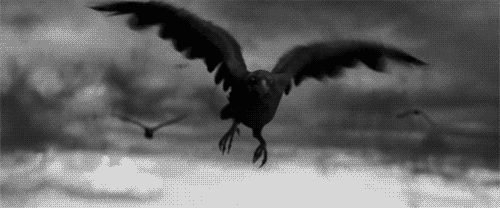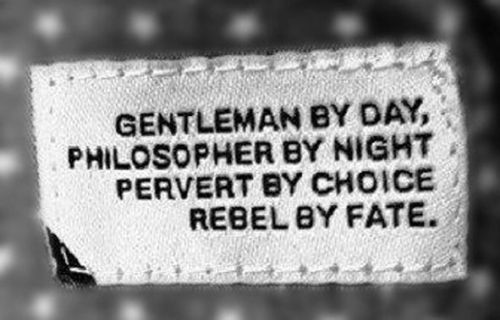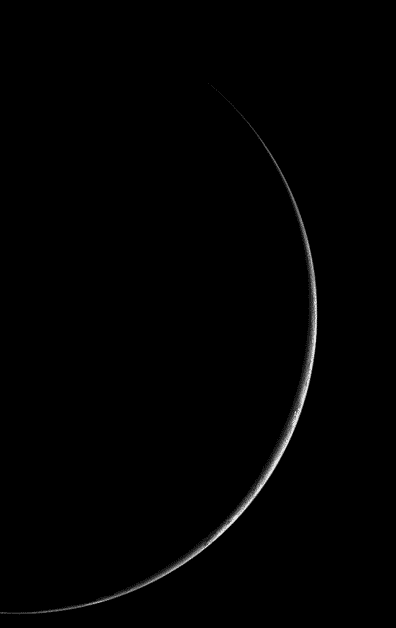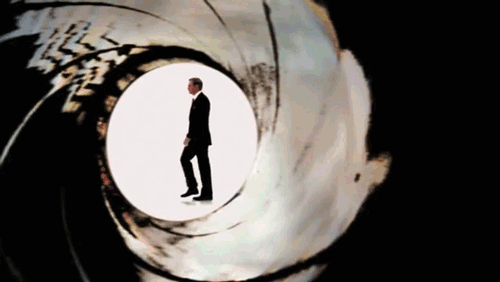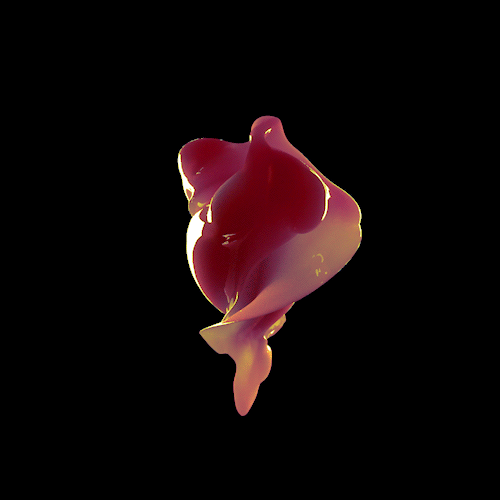With Amy Winehouse long out of commission, Alicia Keys has signed on to lend her sultry, soulful pipes to the new theme song being readied for the upcoming James Bond installment, Quantum of Solace, by alt-rocker Jack White.
The male half of the White Stripes, who wrote and produced the tune, called "Another Way to Die," will also play drums. The film's soundtrack is due out Oct. 28, while the movie itself, the second 007 flick featuring hunky blond Bond Daniel Craig, hits theaters Nov. 7.
White and Keys' collaboration marks the first time a duo have tackled the Bond song, which hopefully will be more "Thunderball" (Tom Jones = suave and sophisticated) than "Die Another Day" (Madonna = Pierce Brosnan getting his ass kicked in a Korean prison).
The tradition of having a specialized theme harkens back to English cabaret star Matt Monro's treatment of the title song from 1963's From Russia With Love.
Hitmakers who have lent their vocals for the use of her majesty's secret service over the years include Paul McCartney and Wings ("Live and Let Die"), Carly Simon ("Nobody Does It Better" originated on The Spy Who Loved Me soundtrack), Sheena Easton ("For Your Eyes Only"), a-ha (the purveyors of "The Living Daylights" as well as '80s favorite "Take on Me"), Duran Duran ("A View to a Kill"), Gladys Knight ("License to Kill"), Tina Turner ("GoldenEye"), Garbage ("The World Is Not Enough") and, most recently, Chris Cornell, who crooned "You Know My Name" for Casino Royale.
U.K. pop stars Leona Lewis and Duffy were also rumored to be in contention for Quantum of Solace honors before the job was handed over to White and Keys, who are sure to add a certain "that sounds like a marimba!" je ne sais quoi to the 22nd Bond adventure.
Wednesday, July 30, 2008
Sunday, July 27, 2008
Anatomy of a Murder (1959)
Anatomy of a Murder is an American 1959 trial court drama film directed by Otto Preminger and written by Wendell Mayes based on the best-selling novel of the same name written by Michigan Supreme Court Justice John D. Voelker under the pen name Robert Traver. Traver based the novel on a 1952 murder case in which he was the defense attorney. The picture stars Jimmy Stewart, George C. Scott, Lee Remick, Ben Gazzara, Arthur O'Connell, Eve Arden, Kathryn Grant, Orson Bean, and Murray Hamilton.
The movie, inspired by a 1952 Big Bay Lumberjack Tavern murder trial in Michigan's Upper Peninsula, was adapted by Wendell Mayes from the novel by Robert Traver (pen name of John D. Voelker, a Michigan Supreme Court judge from 1957-1959).
It was filmed in Big Bay, Marquette, Ishpeming, and Michigamme, Michigan. Some scenes were actually filmed in the Thunder Bay Inn in Big Bay, Michigan, one block from the Lumberjack Tavern, the site of a murder that had inspired much of the novel. The murder occurred at Big Bay Point Light.
The movie was directed by Otto Preminger, and was noted for featuring unusually frank dialogue for 1959. It was among the first Hollywood films to challenge the Production Code, along with Billy Wilder's Some Like It Hot (1959) and Alfred Hitchcock's Psycho (1960).
The role of the judge was offered to both Spencer Tracy and Burl Ives, but ultimately went to Joseph Welch, a real-life lawyer who had made a name for himself when representing the United States Army in hearings conducted by Senator Joseph McCarthy. It was Welch who famously asked of McCarthy, "Have you no sense of decency, sir? At long last, have you left no sense of decency?"
Wednesday, July 23, 2008
Twilight 's Last Gleaming (1977)

Twilight's Last Gleaming is a 1977 film directed by Robert Aldrich, starring Burt Lancaster and Richard Widmark. It is loosely based on the 1971 novel, Viper Three, by Walter Wager. It tells the story of Lawrence Dell, a renegade USAF general, who escapes from a military prison and takes over an ICBM silo near Montana, threatening to launch the missiles and start World War III unless the President, played by Charles Durning, reveals the real reason why America fought in the Vietnam War.
A split screen technique is used at several points in the movie to give the audience insight into the simultaneously occurring strands of the storyline.
The film's title, which functions on several levels, is taken from The Star-Spangled Banner, the national anthem of the United States of America:
O say, can you see, by the dawn's early light / what so proudly we hailed at the twilight's last gleaming.
Loosely adapted from novelist Walter Wager's 1971 thriller, Viper Three, Twilight's Last Gleaming is Robert Aldrich's impassioned and provocative excoriation - and, perhaps implicitly, exorcism - of the American government's administrative Cold War policy that sought to wage a representative, small-scale, protracted ideological war in Vietnam in order to reinforce a "doctrine of credibility" to the (then) Soviet Union and world at large of the country's resolve and willingness to win war at all cost, even if the rules of engagement are reduced to levels of barbarity, untold casualty, mass murder, and human atrocity. Aldrich frames the country's deeply troubled moral conscience through an unlikely pair of world-weary idealists: a former military general and conscientious objector turned escaped convict named Larry Dell (Burt Lancaster) who, in his increasingly criticism of the war and volatile temperament, became a convenient target for government discreditation, and the newly elected president, David Stevens (Charles Durning) who, even in holding office in the aftermath of Vietnam, cannot escape its haunted, unreconciled legacy in his appointment of seasoned cabinet advisors who had weathered the political fallout (and dodged accountability) for the interminable war (Aldrich astutely assembles a cast of veteran actors including Joseph Cotton, Richard Widmark, and Melvyn Douglas to reflect the advisors' status as fossilized relics out of touch with the consequences and social reality of their ideological war game). Recently escaped from a correctional facility where he is serving time on a trumped up murder conviction, Dell enlists the aid of fellow convicts, musclemen Willis (Paul Winfield) and Augie (Burt Young), and trigger-happy safecracker, Hoxey (William Smith) in an elaborate plot to break into the nuclear silo of a military base, commandeer its ICBM missiles, and hold the government - and the world - hostage in exchange for a large sum of money, a safe passage on Air Force One, and above all, the full disclosure of a top secret transcript detailing the former administration's attempts to continue the Vietnam engagement despite already known inevitable consequences and the impossibility of victory as a means of deterrent by proving the country's willingness to use nuclear weapons in the event of an all out war under a policy of mutual assured destruction. In its bracingly contemporary and profoundly relevant exposition on the moral consequences of entrenched ideology and disconnected (and delusive) righteousness, Twilight's Last Gleaming articulates a sincere and elegiac plea for transparency in government and empowerment of the people - a sobering vigil for the restoration of the dignity of political service and the dying ideals of a once great civilization that, in the myopic intoxication of power, has lost its way.
Sunday, July 13, 2008
Sunday, July 06, 2008
Wednesday, July 02, 2008

Sir Ian McKellen and Jim Caviezel are set to star in the ITV remake of the 1960s TV cult show The Prisoner.
Sir Ian will play the sinister Number Two who controls a mysterious place known as The Village.
Passion of the Christ star Caviezel takes the role of Number Six, who finds himself trapped there, with no memory of how he arrived.
It is understood that the six-part series will include scenes shot in Namibia and South Africa.
The original was famously filmed around the Italianate village of Portmeirion on the Llyn Peninsula in North Wales.
Created, written and produced by Patrick McGoohan, the 1960s series was a riff on Cold War politics.
The remake, which is due to premiere in 2009, will reflect 21st century concerns and anxieties such as liberty, security and surveillance.
Sir Ian has called it "an enthralling commentary on modern culture."
"It is witty, intelligent and disturbing. I am very excited to be involved," he added.
Writer Bill Gallagher, who watched the original series when he was a boy, said: "Here was something that was more than television, something I couldn't quite grasp but couldn't let go of.
"It's a unique opportunity for a writer to be able to go back to The Village and tell some new stories about that strange place and its surreal menace.
"We hope to serve up something as beguiling and disturbing as the original was."
Producer Trevor Hopkins says fans of the old series will not be disappointed.
He said: "Jim Caviezel and Ian McKellen bring an incredible level of talent to the project, and we're honoured they are taking on these important roles."
ITV have not yet revealed whether the production will return to Wales.


THE FLY: A SCI-FI LOVE STORY
The Fly is an engrossing exploration of the physical and psychological transformation in which a brilliant scientist begins to mutate into a hybrid of man and fly after one of his experiments goes horribly wrong. Researcher Seth Brundle makes a stunning breakthrough in the field of matter transportation when he successfully teleports a living creature. Frustrated in his budding romance with a scientific journalist, and in need of a human subject, he recklessly attempts to teleport himself. An unseen fly enters the transmission booth as well, however, and Brundle soon realizes that his experiment has had "mixed" results.

An award-winning dream team of composer Howard Shore, director David Cronenberg, and playwright David Henry Hwang makes an intriguing LA Opera debut bringing a cult classic to life.
Plácido Domingo conducts the U.S. premiere of the LA Opera-commissioned opera written by Oscar®-winning composer Howard Shore (Lord of the Rings) based on the original 1957 George Langelaan short story as well as David Cronenberg’s 1986 film, with a libretto by the Tony Award-winning playwright David Henry Hwang (M. Butterfly). This marks not only the operatic debut of the film director, but also the LA Opera debut of the celebrated Academy Award-winning designer Dante Ferretti (The Aviator, Sweeney Todd).
Time magazine described The Fly as "a profound parable on love and loss." In its metamorphosis into an opera, this dark romantic tragedy presents a Kafkaesque meditation on man's uneasy relationship with technology. As the doomed scientist Seth Brundle and his girlfriend Veronica Quaife, Daniel Okulitch and Ruxandra Donose will be making their LA Opera debuts. Kurt Streit plays the part of Veronica's editor and former lover, Stathis Borans.
Subscribe to:
Comments (Atom)



